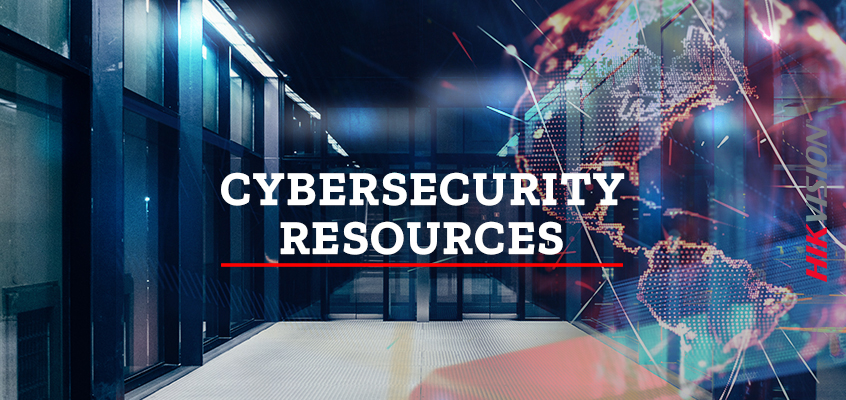Three Cybersecurity White Papers that Offer Insights to Boost Your Security System

Hikvision takes cybersecurity seriously, and we are dedicated to keeping you and your security systems safe by offering several white papers with insights to support cybersecurity. We provide free-to-download cybersecurity white papers on critical and trending topics including SBOMs, Zero Trust, and our approach to Cybersecurity to support dealers and partners. You can also find a link to current resources on our online Cybersecurity Center.
SBOMs: Securing the Software Supply Chain
Supply chain threats are considered a top attack vector as threat actors introduce malicious tools and programs. Attackers introduce these into vendor products and services which can take many forms that host a large network of retailers, distributors, and manufacturers. This presents new threats that can be applied at each level of the software development cycle, leaving it vulnerable to cyberattacks.
The SBOM white paper discusses how organizations enabled with Zero Trust makes technology safer throughout each segment when embedded with a Software Bill of Materials (SBOMs). When deployed and managed properly, SBOMs can provide a 360-degree view of an organization’s risk exposure to software supply chain threats and vulnerabilities. With new threat considerations for enterprises that render many previous approaches to cyber defense obsolete, SBOM is now considered by both cyber industry players and the federal government as a clear solution to the increasing software supply chain attacks.
Zero Trust: Securing the New Digital Era
The Internet of Things (IoT) continues to witness an exponential expansion of data and devices, with new connection speeds and the rise of automation from deep learning. All of this has simultaneously allowed cyber threats to rise on an unimaginable growth curve. Zero Trust is essential within the IoT industry to address cybersecurity concerns, and the Zero Trust white paper explains why Hikvision endorses these concepts.
As past, extensive cyberattacks continue to reverberate, they remind us of the substantial financial impact that can occur. This results in expanding cybersecurity concerns when it comes to the complexity of organizations and insatiable demand for real-time information, both at home, and at work. By identifying the organization’s critical and valuable information, Zero Trust can be an antidote to ever-changing cybersecurity threats. When thoughtfully implemented, it can prevent cyberattacks from occurring, and plays an essential role in safeguarding people, businesses, and devices.
Cybersecurity White Paper: Hikvision’s Current Practice on Cybersecurity Issues
As security technology has rapidly developed, it has also presented new cybersecurity challenges. As the physical security industry works to adopt more comprehensive cybersecurity measures, Hikvision aims to provide practical information to support it.
This is where Hikvision’s Cybersecurity white paper comes into play. Covering the company’s extensive controls, the report explains how Hikvision ensures quality throughout the entire product life cycle, including software development and product controls. Hikvision continues to conduct verifications and security tests at every research and development stage to scan for vulnerabilities and software bugs. And we have an open-door policy for security researchers to safely report vulnerabilities, and work with us to fix any cyberattacks that may occur.
Hikvision’s Dedicated to Keeping your Security Systems Safe
Here at Hikvision, we are dedicated to providing you with information about the best practices for configuring and managing your systems, various cybersecurity resources, the latest security notices, and more. This is why we continue to release white papers and other resources on the latest cybersecurity topics.
For more information, view the SBOM, Zero Trust, and Cybersecurity white papers on our website. Also, check out the Hikvision Cybersecurity Center for additional resources.
